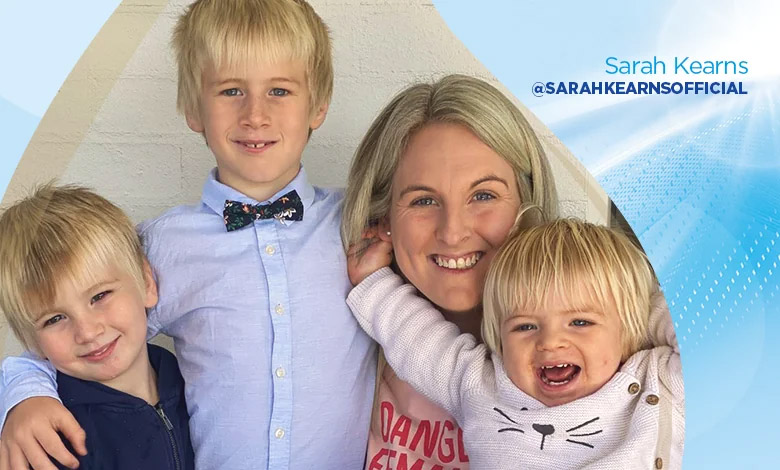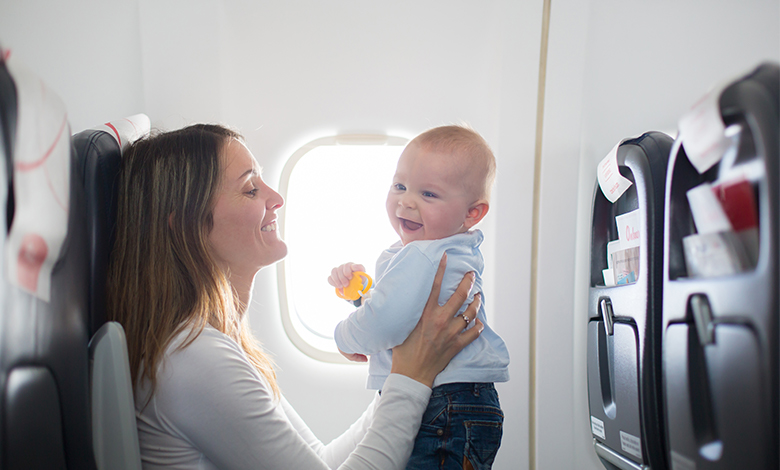- Plan ahead to make sure you can bring what you need
- Consider staying somewhere with a kitchen
- Choose fast, healthy and easy options but let them try some local foods
Tips on feeding your child on holiday

Key points
Any disruption to the routine and familiarity of home can be tricky to navigate with young children, and holidays are no different. Whether it’s a weekend getaway or an overseas trip, your time will be split between making memories and making sure your bag is filled with snacks and water bottles! Here are some tips for feeding your child away from home.
Packing and planning ahead
As with all trips, much of the work begins when you’re still at home. If your trip is taking you far away, spend some time researching the safety of the tap water and, if it’s not OK to drink, factor in purchasing bottled water to your daily budget and itinerary. Breastfeeding in public is acceptable in most countries, but if you’re travelling somewhere culturally sensitive, pack a shawl for public feeds.No matter where you’re going, make sure you’ve got a few refillable drink bottles stashed in bags for the drive, flight, walk or ride: your child will need a drink, and so will you. Keep your fluids up to avoid dehydration, especially if you’re dealing with humidity, jetlag, travel bugs, or if you’re breastfeeding. Aptamil Gold+ Stage 3 toddler milk (for children aged one and up) comes in single-use sachets, which can be dropped in your travel bag to help bridge the gap between what your child needs nutritionally and what they actually eat while you’re on the go.
Travelling snacks
Any parent knows it’s essential to have a supply of snacks on hand at all times to keep tummies full (and hands busy for a few minutes) in between meals. Bags of pre-cut fruit and veggies and snacks like natural yoghurt or puree pouches (look for those with the lowest sugar) are healthy and low-mess options for car rides or flights. Pack supplies of the snacks your child gravitates towards at home; when you need them to eat, it’s ideal to have whatever your kid loves ready to be whipped out of a bag at a moment’s notice.If you’re flying and breastfeeding your little one, try to offer feeds close to take-off and landing. Babies can feel discomfort and pain in their ears due to air pressure changes, but feeding ensures they’re swallowing, which helps to alleviate their discomfort.
At your accommodation
As well as looking into nearby restaurants, map out supermarkets or grocers within walking distance of your accommodation to pick up essentials or grab snacks on your way out on an adventure.If it works within your budget and travel plans, hotel rooms or serviced apartments with kitchens will make meal and snack times smoother, and will help to keep the food budget under control. It helps to arm yourself with ideas for easy, nutritious meals and snacks that don’t require much prep time or equipment. A meal could involve microwave rice, tinned fish and ripe avocado, or supermarket falafels in a wrap with salad and hummus. Easy snacks include toast, cheese and crackers, and fruit and natural yoghurt.
When you’re out exploring
After all your prepping and planning, it’s time to get out and explore a new place with your family.Visiting new countries is a great opportunity to broaden your child’s palate and expose them to new flavours. Most restaurants are happy to make a serve of steamed or mashed vegetables, free of salt or seasonings, for small children, but try also sharing soft foods like vegetables and grains from your plate, too. When you head out to sightsee, be sure to plan more regular breaks and fewer stimulating activities than you normally would if it was just you or other adults on the trip. Stops to snack, have a drink and check in on everyone’s energy and enthusiasm levels, help to keep meltdowns from sneaking up on you.
Related pages

Get in touch with our Careline experts
When your little one is unhappy or unwell you want reliable support from a trusted source. Our Careline team of nutritionists, dietitians and midwives specialise in infant and child health, offering free nutrition, feeding and product information.
Every feeding journey is unique
Not every parent can produce breast milk. No matter what choice you make, we will support your unique feeding journey.
We at Nutricia believe in providing the best nutrition for babies, which is why we recognise breast milk is uniquely superior for babies as it provides many benefits. It is important that mums have a healthy diet to support breastfeeding. A decision not to breastfeed, or partial bottle feed, may reduce breast milk supply making it difficult to reverse. The cost and social implications of using feeding methods should be considered. Always seek professional advice about feeding your baby. Ensure formula is used as directed as improper use can affect baby’s health.
REMEMBER: The information on this page is general only. If you have any concerns about your baby’s poo or questions about constipation or any other health concerns, please speak to a healthcare professional, like a Pharmacist, GP or Maternal Child Health Nurse.



